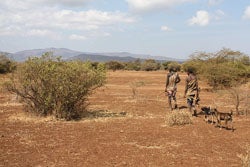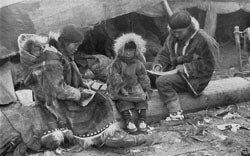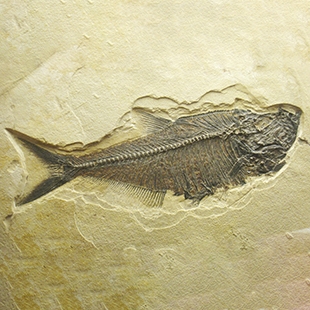show/hide words to know
Hominin: humans and all of their extinct relatives. Some of the best known hominin genera include Australopithecus, Paranthropus, and our genus, Homo. ... more
Hunter-gatherer society: a society that relies on wild plants and animals for food, rather than domesticated species.
Specialization: when individuals divide up tasks, so that each individual only does one task.
Sharing is caring—division of labor
 Many people do different things for a living. Some are teachers, or businessmen, or firefighters, or farmers. This job specialization helps make sure that everything gets done well. Things would be much messier if teachers had to keep stopping class to fight fires or to make business deals.
Many people do different things for a living. Some are teachers, or businessmen, or firefighters, or farmers. This job specialization helps make sure that everything gets done well. Things would be much messier if teachers had to keep stopping class to fight fires or to make business deals.
Job specialization may be one of the earliest kinds of cooperation among humans. Among living hunter-gatherer groups, men and women will often split up to look for food. Men might go hunting or look for honey while women forage for plant foods. They will share their food so that everyone gets a bit of something.
 Concentrating on just one job helps individuals get better at doing that job. So women who forage might learn to recognize the best places to dig for tubers. Men might get practice climbing trees to reach beehives. As they get better, they will start to work faster or gather more food. Over time, they will have more food to raise their children faster. They might also have more free time to spend doing other activities.
Concentrating on just one job helps individuals get better at doing that job. So women who forage might learn to recognize the best places to dig for tubers. Men might get practice climbing trees to reach beehives. As they get better, they will start to work faster or gather more food. Over time, they will have more food to raise their children faster. They might also have more free time to spend doing other activities.
Specialization may have allowed early hominins the extra free time needed to start making stone tools. These tools would help them hunt and forage faster and more efficiently. This would give them even more free time to develop newer and newer technologies.









